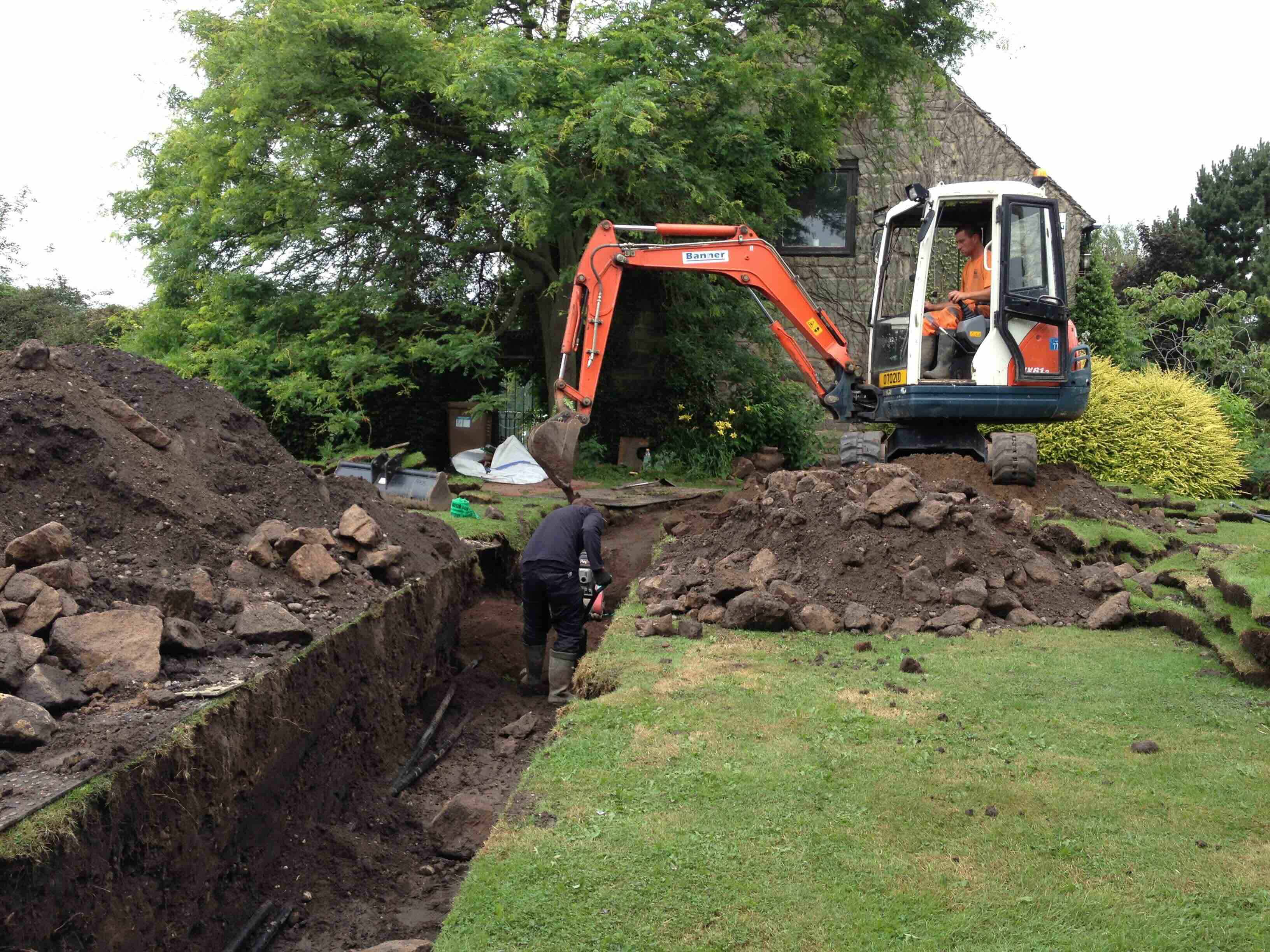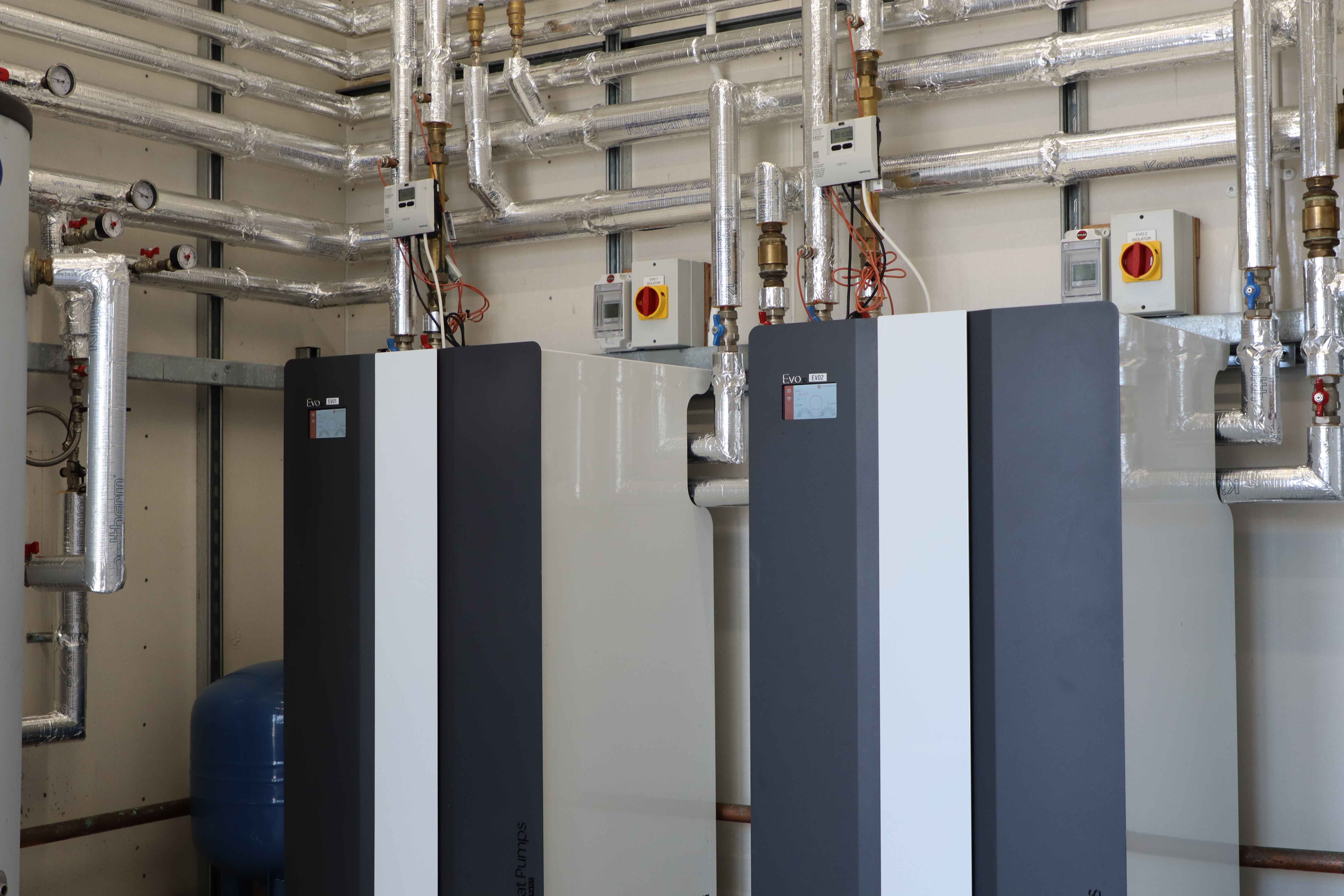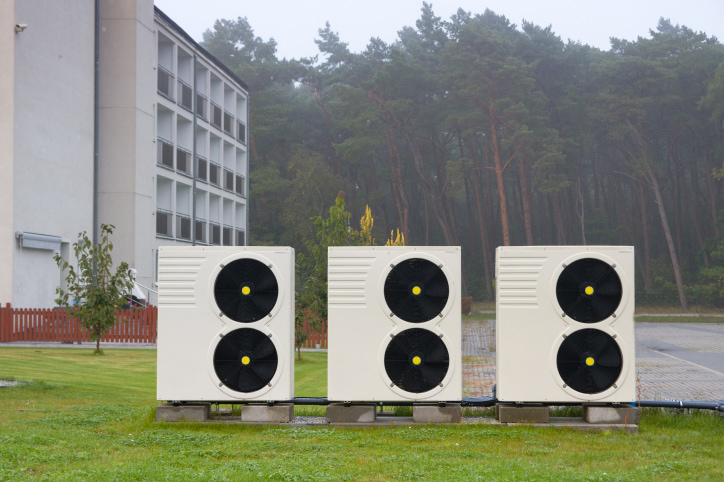Results
Your best options
These options are likely to be the best for homes like yours.
.jpg)
[.cms-scribble-short]Air-to-air [.cms-scribble-short] [.position-relative]heat pump[.position-relative]
System
An air-to-air heat pump works like air conditioning in reverse, taking cool air from outside and warming it before releasing it into your home.
Cost
£2,500 (no grant available)
Recommendation
Air-to-air heat pumps are cheaper and more simple to install than other heat pumps, making them a good option for homes with one or two bedrooms. They’re also a good option for homes without an existing wet central heating system.
Other possible options
These options are technically possible in homes like yours, but they’ll either be unnecessarily complex or costly to install, or may not be the most cost-efficient to operate.

[.cms-scribble-long]Ground source [.cms-scribble-long] [.position-relative]heat pump with ground loop[.position-relative]
System
This ground source heat pump uses underground pipework laid in a shallow trench to absorb heat from the ground to warm up the water that runs through your radiators.
Cost
£17,000-£28,000 (£7,500 grant available)
Recommendation
Ground source heat pumps run more efficiently than other heat pumps, but the underground pipework is very expensive to install. Although you may have enough outdoor space for the ground loop, these high upfront costs usually make them better investments for larger homes than yours.

[.cms-scribble-long]Ground source [.cms-scribble-long] [.position-relative]heat pump with borehole[.position-relative]
System
This ground source heat pump uses underground pipework installed in a deep, but narrow, borehole to absorb heat from the ground to warm up the water that runs through your radiators.
Cost
£49,000 (£7,500 grant available)
Recommendation
Ground source heat pumps run more efficiently than other heat pumps, but the underground pipework is very expensive to install. Although you may have enough outdoor space to drill a borehole, these high upfront costs usually make them better investments for larger homes than yours.

[.cms-scribble-long]Shared ground [.cms-scribble-long] [.position-relative] source heat pump[.position-relative]
System
This ground source heat pump uses an array of underground pipework to absorb heat from the ground to warm up the water that runs through your radiators. This pipework is shared between different properties.
Recommendation
Although shared ground source heat pumps are a good way to spread the high cost of installation with your neighbours, this can create extra hassle. Other heat pumps are likely to be easier to install for homes like yours.
Not feasible for your home
It’s highly unlikely that these options will be technically possible in homes like yours.
.jpg)
[.cms-scribble-short]Air source [.cms-scribble-short] [.position-relative]heat pump [.position-relative]
System
An air source heat pump uses heat from the air outdoors to warm up the water that runs through your radiators and taps.
Cost
£8,000-£15,000 (£7,500 grant available)
Recommendation
As you live in a property with communal or district heating, an air source heat pump is unlikely to be a good idea for your home. It could be costly and complex to integrate it with the communal heating system and it’s likely you’ll have to continue paying your communal heating charges even if you’re not using the service.

[.cms-scribble-long]Heat network[.cms-scribble-long] [.position-relative][.position-relative]
System
Heat networks supply heating to multiple buildings or homes through a network of insulated pipes, using heat generated from various sources such as industrial waste heat or heat pumps. There are two types: district heating, which serves large areas and connects multiple buildings, and communal heating, which supplies heat to smaller developments like blocks of flats.
Recommendation
Your answers suggest that you don't live in a flat/ apartment or you don't currently have district heating, which means connecting to a heat network is unlikely to be a good option for you.